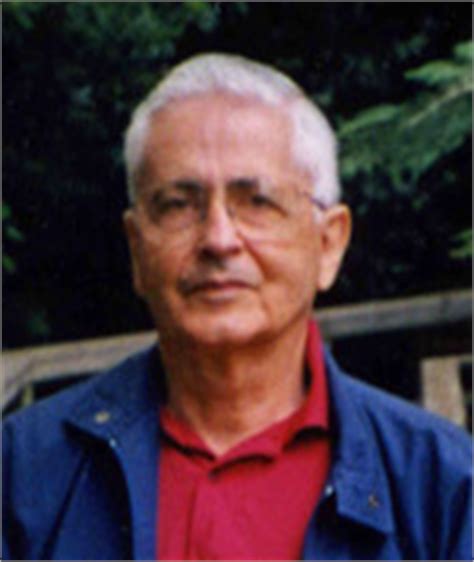A Quote by Watchman Nee
The Law requires much, but offers no help in the carrying out of its requirements. The Lord Jesus requires just as much, yea even more (Matt. 5:21-48), but what he requires from us he himself carries out in us. The law makes demands and leaves us helpless to fulfill them; Christ makes demands, but he himself fulfills in us the very demands he makes.
Related Quotes
Grace means that God does something for me; law means that I do something for God. God has certain holy and righteous demands which he places upon me: that is law. Now if law means that God requires something of me for their fulfillment, then deliverance from law means he no longer requires that from me, but himself provides it.
The law of giving and receiving is fundamental, and relates just as much to God as it does to us. As we go through the door of giving ourselves to God in worship we find that God comes through that same door and gives Himself to us. God's insistence that we worship Him is not really a demand at all but an offer-an offer to share Himself with us. When God asks us to worship Him, He is asking us to fulfill the deepest longing in Himself, which is His passionate desire to give Himself to us. It is what Martin Luther called "the joyful exchange."
The people who help us grow toward true self offer unconditional love, neither judging us to be deficient nor trying to force us to change but accepting us exactly as we are. And yet this unconditional love does not lead us to rest on our laurels. Instead, it surrounds us with a charged force field that makes us want to grow from the inside out - a force field that is safe enough to take the risks and endure the failures that growth requires.
Although the theory of relativity makes the greatest of demands on the ability for abstract thought, still it fulfills the traditional requirements of science insofar as it permits a division of the world into subject and object (observer and observed) and, hence, a clear formulation of the law of causality.
The gospel is saying that, what man cannot do in order to be accepted with God, this God Himself has done for us in the person of Jesus Christ. To be acceptable to God we must present to God a life of perfect and unceasing obedience to his will. The gospel declares that Jesus has done this for us. For God to be righteous he must deal with our sin. This also he has done for us in Jesus. The holy law of God was lived out perfectly for us by Christ, and its penalty was paid perfectly for us by Christ. The living and dying of Christ for us, and this alone is the basis of our acceptance with God
We Gentiles owe our life to Israel. It is Israel who has brought us the message that God is one, and that God is a just and righteous God, and demands righteousness of his children, and demands nothing else. It is Israel who has brought us the message that God is our Father. It is Israel who, in bringing us the divine law, has laid the foundation of liberty.
I know that God loves us. He allows us to exercise our moral agency even when we misuse it. He permits us to make our own decisions. Christ cannot help us if we do not trust Him; He cannot teach us if we do not serve Him. He will not force us to do what's right, but He will show us the way only when we decide to serve Him. Certainly, for us to serve in His kingdom, Christ requires that we experience a change of thought and attitude.
































